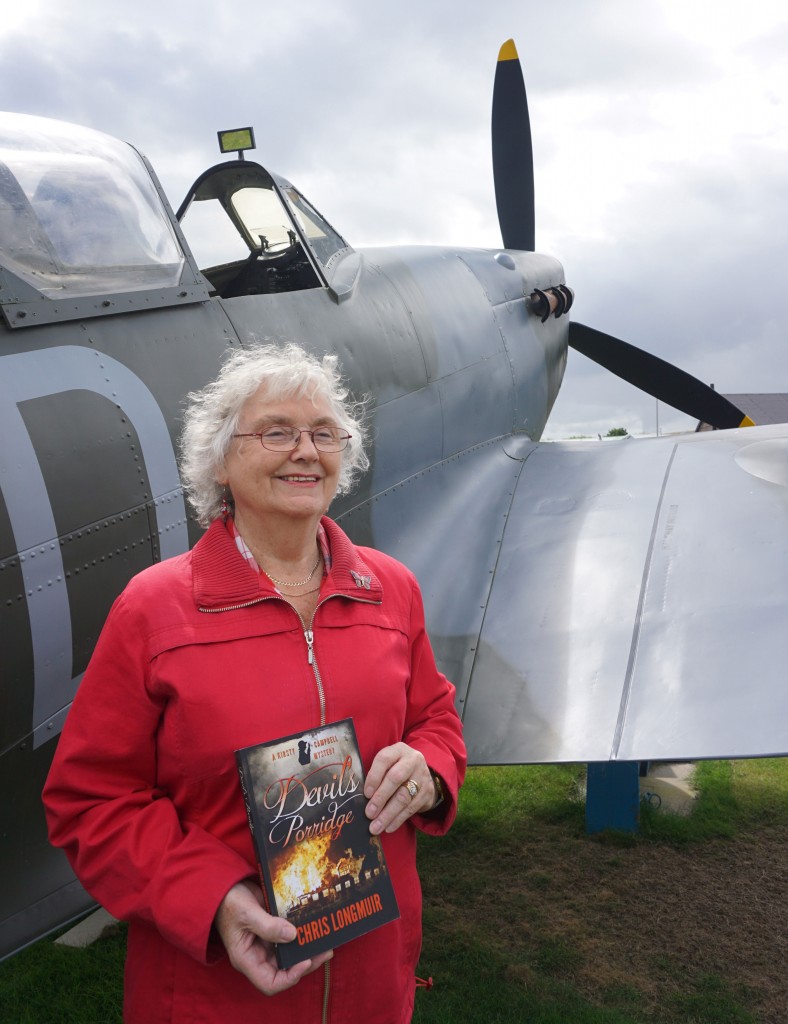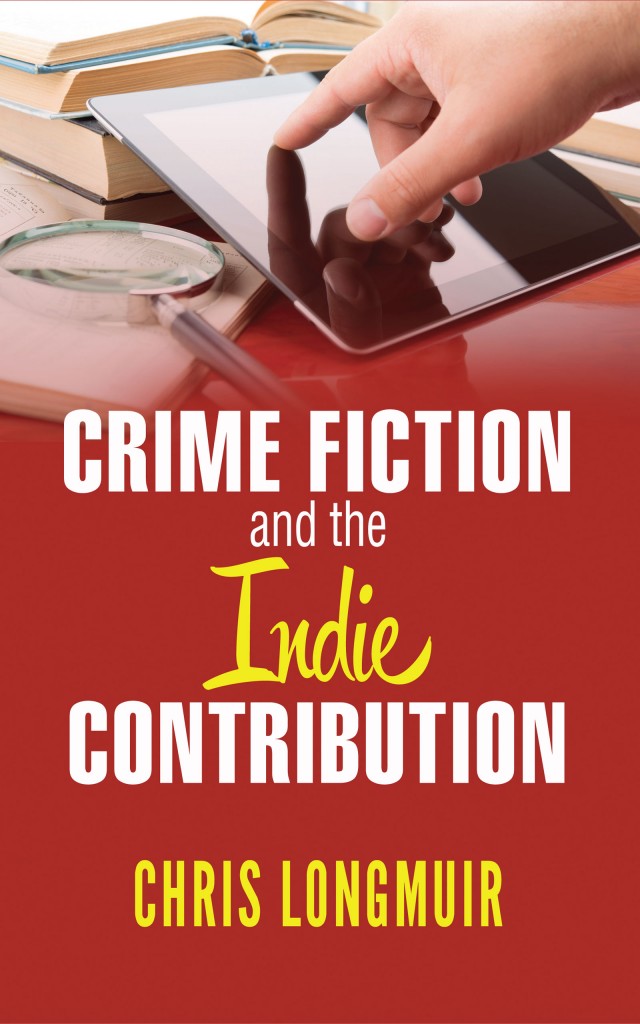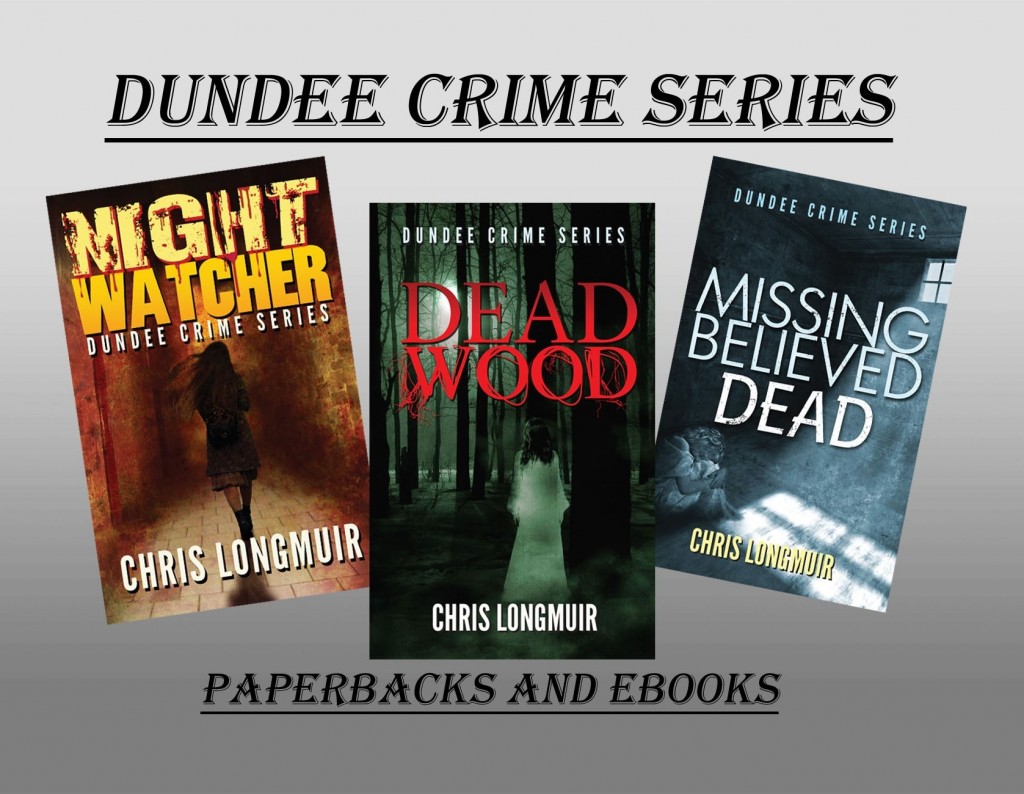 Welcome back to Celtic Connexions, Chris. I see you’ve brought your latest novel with you. Can you tell us about Devil’s Porridge?
Welcome back to Celtic Connexions, Chris. I see you’ve brought your latest novel with you. Can you tell us about Devil’s Porridge?
Devil’s Porridge has been on my radar to write since 2008, but I kept putting it off, mainly because other things got in the way, like winning the Dundee International Book Prize in 2009 which meant I had to concentrate on my contemporary crime novels, namely the Dundee Crime Series. So, Devil’s Porridge had to take a back seat for several years. But it’s always been niggling away at the back of my mind, demanding to be written. We authors are slaves to our books and characters.
The book is a historical murder mystery set in Britain, during the First World War. I have mixed real events as well as fictional ones into the story. For example, I start off in East London with the massive munitions factory explosion which almost obliterated Silvertown. How could I resist an event like that, it made a great start to the story. The secret service plotline features Captain Vernon Kell and William Melville who actually did exist and were part of MI5, and the visit to Gretna by King George and Queen Mary did take place on 18 May 1917, although my assassination attempt is purely fictional.
I suppose you could describe Devil’s Porridge as a murder mystery with bits of sabotage, spying and an assassination attempt thrown into the mix. I must warn you there are quite a lot of characters in Devil’s Porridge, and varying subplots. I should also say I write in a multi-viewpoint style in a modern fashion rather than a historic one. So you won’t have to cope with any outdated language. And, for those readers who like to delve into the history behind the book, I’ve included a historical endnote.
Did this book require you making a trip to visit the locations used in your book or were you able to get everything you needed online?
This book needed a lot of research. I stumbled across information about Gretna and the munitions factories when I was researching the origins of women police. Did you know that the Ministry of Munitions (a UK government department) contracted with the Women’s Police Service to supply women police to patrol and work at Britain’s munitions factories? So, my initial research originated in Joan Lock’s excellent history of the origins of women police ‘The British Policewoman’. After reading that I sought out other books, and did a lot of online research, both about women police and munitions factories.
I also visited Gretna and Eastriggs where the main action takes place. Unfortunately I couldn’t access the ground the munitions factory occupied because it is owned by the MOD (Ministry of Defence) and no one is allowed access. Goodness only knows what they do there! However, they have a fabulous museum in Eastriggs, also called Devil’s Porridge, and the secretary allowed me to access the archives.
I also had to do research on the Belgian situation during the First World War, because Kirsty teams up with Beatrice, a Belgian refugee. And because I have Irish revolutionaries working as navvies at Gretna, I had to research the Irish situation and the Easter Rising of 1916. I also delved into how German spies operated at this time, and the handlers of my German spy were real people based in Antwerp. I could go on and on, the research was a massive task.
This book is set, two years (I believe) before The Death Game so Kirsty has yet to arrive in Dundee. Is she a member of the Women’s Police Service in Devil’s Porridge?
Yes, Kirsty joined the Women’s Police service when it was formed in 1914. Did you know that the women police were initially voluntary organisations formed by suffragette societies when they gave up their militant activities at the start of the war? There were actually two different sets of women police at this time. The Women’s Police Service, and the less militant Women’s Patrols. Kirsty was in the Women’s Police Service which was contracted to police the Gretna munitions factory. The agreement was signed in October 1916, and at its peak there were 167 policewomen serving at Gretna. I have included details of the different organisations in my historical endnote.
The title is unusual. How did you decide on Devil’s Porridge? Is there a meaning behind it?
Arthur Conan Doyle, the creator of Sherlock Holmes, visited the Gretna munitions factory in 1916 and wrote an article based on this visit, which was published in the Annandale Observer. You have to understand that Gretna Munitions Factory was a vast place. Nine miles long and two miles wide, and they built two new towns, Gretna and Eastriggs, to service it. At the Eastriggs end the munitionettes mixed guncotton and nitroglycerine together, with their bare hands, into a paste needed for the manufacture of cordite which was the propellant used in bombs. The paste the munitionettes kneaded in lead drums was likened to a porridge consistency, and it was this that Conan Doyle named Devil’s Porridge. Here is what he said “Those smiling khaki-clad girls who are swirling the stuff round in their hands would be blown to atoms in an instant if certain very small changes occurred. The changes will not occur, and the girls still smile and stir their ‘devil’s porridge’, but it is a narrow margin between life and death.” The name caught my eye and I thought it would make a great book title. As I said before there is also a museum with this title so they must have had the same thought I did. If you are ever in the Gretna area you really must visit this museum, it’s something special. Here is the online link for it http://www.devilsporridge.org.uk/
Do you prefer writing Historical Crime as opposed to your Dundee Crime Series?
I really don’t have a preference. I like writing both contemporary and historical, it’s the crime and the mystery I find intriguing. I’ve read a lot of crime fiction over my lifetime. I like the darkness of Scandinavian crime fiction, and I find the American and Canadian style of writing has more action and suspense than a lot of traditional British crime fiction which seems to be more cerebral. But on the other hand, I like the puzzle element of British books – Agatha Christie was superb at this style of writing. So, I think my crime fiction is a cross between the crime thriller, mixed in with the puzzle element. It seems to work, and readers seem to like it.
What’s next for Kirsty Campbell? Are you working on another novel featuring her?
I’m tossing up at the moment as to whether to write a Kirsty Campbell book next, or a DI Bill Murphy one. I have readers clamouring for both. But, be assured, both Kirsty and DI Bill Murphy will be back.
If you, or any of your readers are tempted by Devil’s Porridge, there is a description of the book on my website, plus a link to read the first chapter.
Thank you for having me, Melanie. It’s nice to visit Canada again, even though a virtual visit doesn’t let me explore your lovely town. I have fond memories of my last visit when I did the Thousand Islands boat tour, as well as the creepy witch walk in the evening.
Check out Devil’s Porridge on Chris Longmuir’s website
And while you’re at it have a look at Chris Longmuir’s blog








